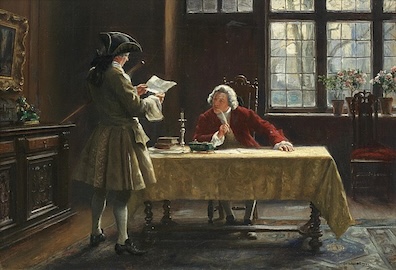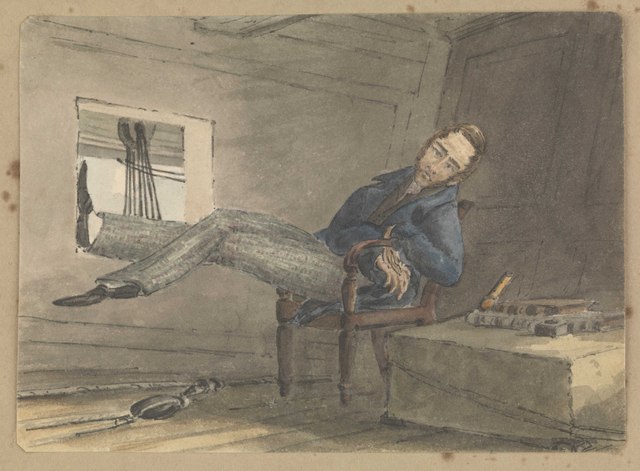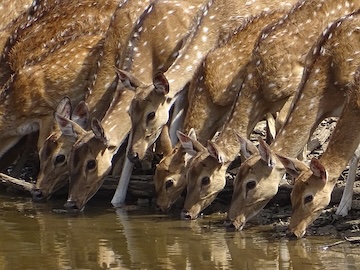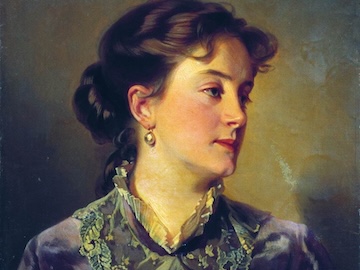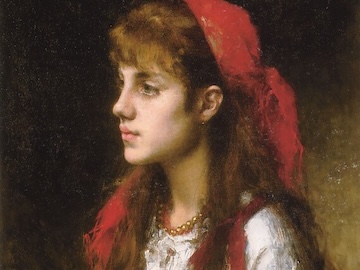67
Advice that is not based on honesty, humility and deep reflection is mere craft.
Ben Jonson’s Timber: or, Discoveries was not published until 1641, four years after his death. It took the form of a series of reflections on subjects from personal morality to literary criticism, written by a keen and principled observer of life in the theatre and also at Court. In this extract, he discusses the giving of advice.
Picture: By Frank Moss Bennett (1874-1952), via Wikimedia Commons. Public domain.. Source.
Posted November 9 2024
68
Benjamin Disraeli revealed the secret behind holding one’s place at the top of Parisian society.
In February 1860 the new Cobden-Chevalier treaty was announced, a breakthrough free-trade deal with France, and a new era in Anglo-French relations. An especially vocal opponent of it was MP and novelist Benjamin Disraeli; so when John Bright rose in the Commons and read aloud this passage from Disraeli’s Coningsby (1844), he drew a good deal of laughter.
Picture: © Rauantiques, Wikimedia Commons. CC BY-SA 4.0.. Source.
Posted November 8 2024
69
Whenever Charles Dickens felt his exhausting workload was starting to take its toll, he knew just what to do.
Charles Dickens corresponded regularly with a Swiss friend whom he had met in Lausanne, a M. de Cerjat. In one of his letters, written from his home near Rochester in Kent, Dickens shared with his friend the secret of his remarkably industrious working life — frequent trips to France.
Picture: By the Revd Thomas Streatfield (1777-1848), via Wikimedia Commons. Public domain.. Source.
Posted November 8 2024
70
The animals in the jungle agree that amidst the drought, the sport of hunter and hunted has to be suspended.
In Rudyard Kipling’s story The Jungle Book, a prolonged drought has left Mowgli and the animals with no food and little water. The waterhole has sunk so low that the Peace Rock is showing, and Hathi, the elephant, has called the Water Truce so hunter and hunted alike can drink. As dusk falls, the truce is holding — though Bagheera, the blank panther, isn’t much help.
Picture: © ArghoRoy118, Wikimedia Commons. CC BY-SA 3.0.. Source.
Posted November 7 2024
71
A loving parent doesn’t want her son to be a success; she wants him to be a fine human being.
In February 1878, Fyodor Dostoevsky received a letter from an anxious mother asking him how to bring up a child. Dostoevsky was taken aback, and told her plainly that she was requiring more wisdom than he was fit to give. In particular, her question “What is good, and what is not good?” left him almost speechless; fortunately for us, that left just enough speech to impart this touching counsel.
Picture: By Ivan Makarov (1822–1897). Wikimedia Commons. Public domain.. Source.
Posted November 5 2024
72
One author was a long way ahead at the top of Dostoevsky’s reading list.
In one letter, Nikolai Osmidov asked novelist Fyodor Dostoevsky whether he should believe in God; in another, he asked him what he should give his daughter to read. Dostoevsky found none of Osmidov’s questions easy to answer, but he was sure about one thing: the girl absolutely must read the novels of Sir Walter Scott.
Picture: By Alexei Harlamov (1840–1925), Wikimedia Commons. Public domain.. Source.
Posted November 5 2024
